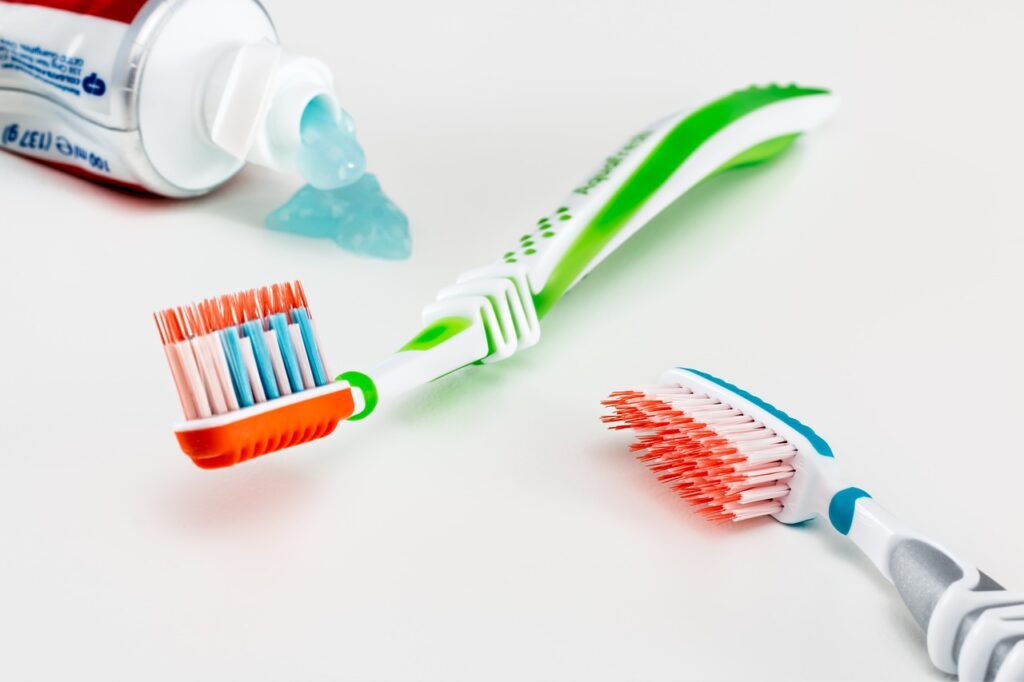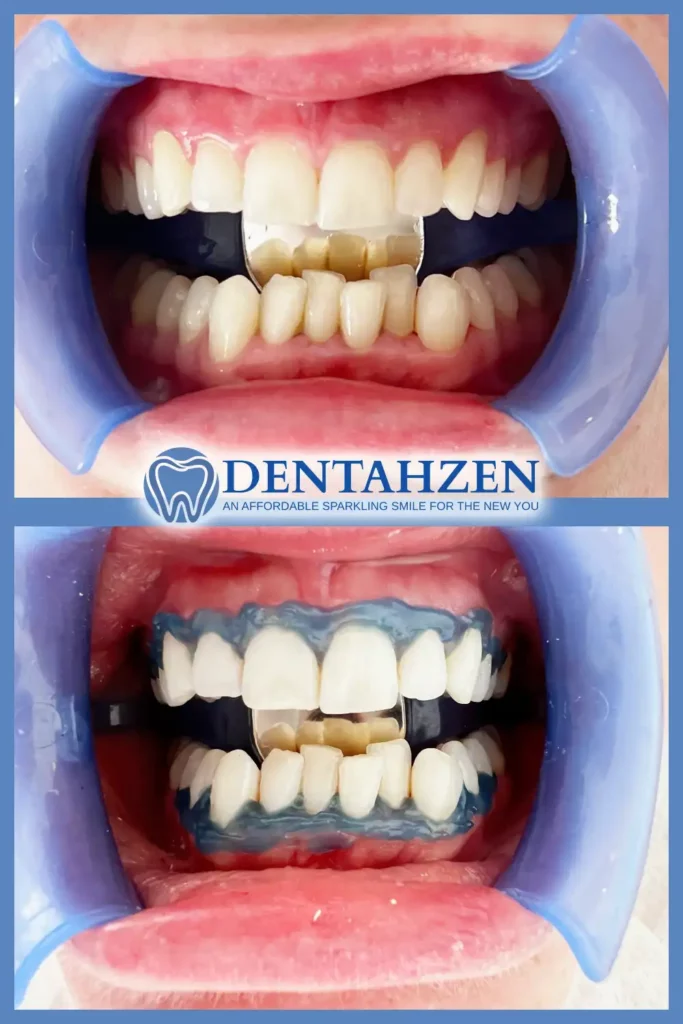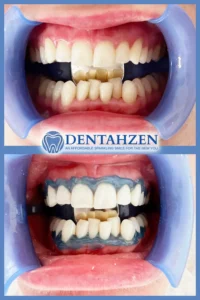Introduction: Setting the record straight for common myths about teeth whitening
Common myths about teeth whitening are prevalent, leading to confusion and misunderstandings about the process. As a result, it is important to set the record straight about common teeth whitening myths. One common misconception is that teeth whitening weakens the enamel. However, it is essential to note that when performed correctly by a professional, teeth whitening does not weaken the enamel. In fact, professional treatments use safe concentrations of whitening agents that have been thoroughly tested to ensure their efficacy without causing harm to the enamel.
Another myth surrounding teeth whitening is that it causes sensitivity. While it is true that some individuals may experience temporary sensitivity during or after the treatment, it is important to understand that this sensitivity is usually mild and subsides within a few days. Moreover, advancements in teeth whitening technology have led to the development of treatments that are less likely to cause sensitivity. By consulting with a dental professional, individuals can choose the most suitable whitening option tailored to their needs while minimizing the risk of experiencing sensitivity.
Key Takeaways
- Teeth whitening does not weaken the enamel or cause sensitivity when done correctly by reputable dental professionals.
- Properly conducted teeth whitening procedures are safe and effective for enhancing the appearance of teeth.
- Whitening toothpaste does not provide the same results as professional teeth whitening treatments.
- Lifestyle factors like coffee, tea, tobacco, and certain foods can gradually stain teeth again, necessitating regular touch-up treatments or maintenance at home to maintain desired whiteness.
- Dental bleaching is a safe procedure when done properly under professional supervision and does not damage tooth enamel.
- Temporary tooth sensitivity or gum irritation may occur after teeth whitening, but these side effects are generally mild and resolve on their own.
- Following expert advice and guidelines is essential for safe and effective teeth whitening.
- Teeth whitening myths can lead to disappointment or harm, so it’s important to separate myths from reality and rely on expert insights for informed decisions.
- Overuse or misuse of whitening products can cause sensitivity or gum irritation, but these side effects are usually temporary and can be avoided by consulting a dental professional.
Myth #1: Teeth whitening weakens the enamel
Dental whitening facts reveal that certain teeth whitening procedures do not weaken the enamel. Contrary to this common myth, professional teeth whitening treatments are typically safe and carefully formulated to minimize any potential damage to the enamel. In fact, many of these procedures employ hydrogen peroxide or carbamide peroxide as the active whitening agents, which have been proven effective in breaking down stains without compromising the strength of the enamel.
The enamel is the protective outer layer of the teeth, and professional teeth whitening treatments are designed to penetrate the enamel and target the discolored molecules beneath the surface. When performed by a dental professional, these treatments are carefully monitored to ensure the enamel is not weakened or damaged. The misconception that teeth whitening weakens the enamel may stem from anecdotal experiences or improper use of over-the-counter whitening products. However, when done correctly and under professional supervision, dental whitening can deliver impressive results without compromising the integrity of the enamel.
Myth #2: Teeth whitening causes sensitivity
Teeth whitening has long been associated with causing sensitivity, but this belief is simply one of the common teeth bleaching myths that need to be debunked. While it is true that some individuals may experience temporary sensitivity after teeth whitening treatments, it is important to understand that this is not a direct result of the whitening process itself. Rather, it is due to the temporary exposure of the dentin layer, which can lead to sensitivity.
Professional teeth whitening treatments are designed and administered by dental professionals who take various precautions to minimize potential sensitivity. They use customized trays or other techniques to protect the gums and ensure that the bleaching agent does not come into direct contact with the sensitive areas of the teeth. Additionally, professional whitening products are formulated with desensitizing agents to further reduce the risk of sensitivity. Ultimately, it is crucial to consult with a dental professional to determine the most appropriate whitening technique for your unique needs and to ensure a safe and effective treatment.
Myth #3: Whitening toothpaste provides the same results as professional treatments
Many people believe that using whitening toothpaste can deliver the same results as professional teeth whitening treatments. However, it is important to debunk this misconception and understand the differences. Whitening toothpaste typically contains mild abrasives and chemicals that help remove surface stains. While this may improve the overall appearance of your teeth to some extent, it cannot provide the same level of whitening as professional treatments.
Professional teeth whitening procedures, on the other hand, are performed under the supervision of a dentist or dental professional. They use stronger bleaching agents that penetrate the enamel to remove deep stains and discoloration. These treatments are tailored to individual needs, ensuring a more effective and long-lasting outcome. So, while using whitening toothpaste can be a part of your regular oral care routine, it is important to consult a dental professional for more significant whitening results.
Myth #4: Teeth stay permanently white after whitening
Teeth whitening is an effective cosmetic dental procedure that helps brighten and enhance the appearance of your smile. However, one common misconception is that teeth stay permanently white after whitening. It is important to understand that the results of teeth whitening are not permanent. Over time, our teeth are naturally exposed to various factors that can cause them to become discolored again. This includes consuming stain-causing foods and drinks, smoking, and poor oral hygiene habits. Therefore, it is essential to follow effective tooth whitening techniques to help maintain your bright smile for as long as possible.
To maintain the results of teeth whitening, it is recommended to practice good oral hygiene habits such as brushing your teeth twice a day, flossing daily, and using mouthwash. Additionally, it is advisable to avoid or limit the consumption of foods and beverages that can stain your teeth, like coffee, red wine, and dark-colored sodas. Regular visits to your dentist for professional cleanings and touch-up whitening treatments can also help prolong the effects of teeth whitening. By following these steps, you can enjoy a whiter smile for an extended period and keep your teeth looking their best.
Myth #5: Dental bleaching damages tooth enamel
Dental professionals are often asked about the potential risks of dental bleaching on tooth enamel. Contrary to the myth, dental bleaching does not inherently damage tooth enamel. When performed by trained professionals, teeth whitening procedures are safe and effective. These professionals carefully monitor the process, using gels or solutions that are specifically designed to minimize any potential harm to the tooth enamel.
It is important to note that dental bleaching can cause temporary tooth sensitivity, but this does not equate to enamel damage. Dental professionals go to great lengths to ensure that patients receive the best possible treatment, often using techniques that minimize potential side effects. By consulting with a dental professional, individuals can undergo teeth whitening treatments that are tailored to their specific needs, ensuring a bright and beautiful smile without compromising the health of their enamel.
- Dental bleaching, when performed by trained professionals, does not damage tooth enamel.
- Teeth whitening procedures are safe and effective under the careful monitoring of dental professionals.
- Gels or solutions used in teeth whitening treatments are specifically designed to minimize potential harm to tooth enamel.
- Temporary tooth sensitivity may occur after dental bleaching, but this does not indicate enamel damage.
- Dental professionals use techniques that minimize potential side effects and prioritize patient safety during teeth whitening treatments.
- Consulting with a dental professional ensures personalized teeth whitening treatments that maintain the health of tooth enamel.
Tips for safe and effective teeth whitening
To achieve safe and effective teeth whitening, it’s important to understand the truth about tooth sensitivity after the process. While some individuals may experience temporary sensitivity after whitening, it is generally mild and subsides within a few days. This sensitivity occurs because the peroxide-based whitening gel can temporarily open up the pores in the teeth, making them more susceptible to external stimuli. To minimize discomfort, it is advisable to use a toothpaste formulated for sensitive teeth and avoid consuming hot or cold foods and beverages immediately after whitening. Additionally, it is recommended to consult with a dental professional for personalized advice and treatment options.
In addition to managing sensitivity, following a few key tips can further enhance the safety and effectiveness of teeth whitening. One important factor is to choose a trusted and reputable product, preferably one that has undergone clinical trials and has the approval of dental associations. It is also crucial to follow the instructions provided with the whitening product carefully, including the duration and frequency of application. Overusing or misusing whitening products can lead to adverse effects such as gum irritation or damage to tooth enamel. Seeking professional guidance can ensure proper usage and help customize the whitening process to individual needs. Overall, being well-informed and cautious safeguards against potential risks and promotes optimal outcomes in teeth whitening.

Temporary side effects: Sensitivity and gum irritation
Whitening toothpaste, often marketed as an affordable alternative to professional treatments, is a popular option for those seeking a brighter smile. However, it is important to note that the use of whitening toothpaste may not deliver the same results as professional treatments. While whitening toothpaste may help remove surface stains, it is not as effective in targeting deeper tooth discoloration. Therefore, individuals who solely rely on whitening toothpaste may experience limited improvement in tooth whiteness and may still be prone to sensitivity and gum irritation.
On the other hand, professional teeth whitening treatments conducted by a dental professional can provide more significant and longer-lasting results. These treatments typically involve the use of stronger bleaching agents, customized trays, or in-office procedures. However, it is essential to consult with a dentist before opting for professional treatments to ensure suitability and minimize the risk of any potential side effects. Ultimately, while whitening toothpaste may be a convenient option for maintenance, professional treatments are often the preferred choice for individuals seeking noticeable and lasting whitening results.
Expert advice for maintaining whitened teeth
To maintain long-lasting teeth whiteness, it is essential to follow a few expert tips. Firstly, it is crucial to maintain good oral hygiene by brushing your teeth twice a day with a whitening toothpaste and using mouthwash to kill harmful bacteria. Additionally, regular visits to the dentist for professional cleanings are recommended to remove any surface stains and maintain the whiteness of your teeth.
Furthermore, avoiding food and drinks that can stain your teeth, such as coffee, tea, red wine, and tobacco products, can significantly contribute to maintaining a bright smile. If you do consume these substances, it is advisable to brush your teeth or rinse your mouth afterward to minimize the risk of stains. Finally, using whitening treatments at home or getting touch-up treatments from a dental professional can help maintain the brightness of your teeth over time. By following these simple yet effective steps, you can ensure that your teeth stay radiant and white for a prolonged period.
Conclusion: Making informed decisions regarding teeth whitening
In conclusion, it is crucial to make informed decisions when it comes to teeth whitening. To maintain a healthy smile, it is important to dispel common myths surrounding this cosmetic procedure. Taking steps such as avoiding teeth staining habits like excessive consumption of coffee, tea, and tobacco can help preserve the whiteness of your teeth. Furthermore, understanding that professional treatments are more effective than whitening toothpaste and that the effects of teeth whitening are not permanent will help you make the right choices for your oral health.
By following these guidelines, you can achieve a whiter smile while ensuring the safety and health of your teeth. It is also advisable to consult with a dental professional before embarking on any whitening treatment to determine the most suitable option for your specific needs. Remember, a beautiful smile is not just about aesthetics but also about maintaining oral hygiene and overall well-being. With proper care and regular dental check-ups, you can enjoy a bright and healthy smile for years to come.


